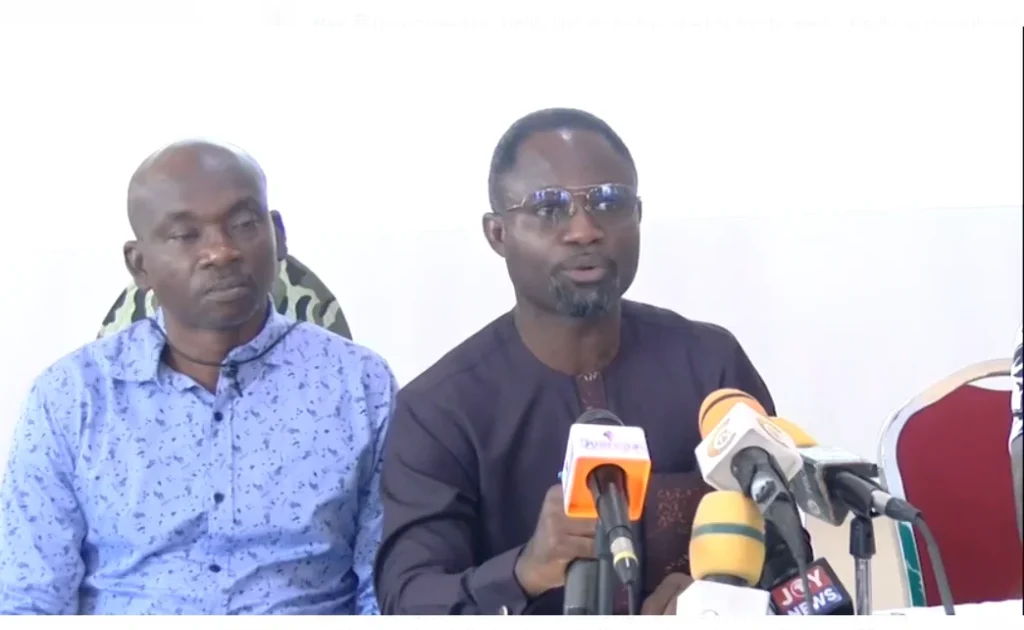The looming threat of a cholera epidemic in Ghana has sparked urgent calls for action from the parliamentary Minority, who warn that the outgoing Akufo-Addo administration’s inaction could lead to a full-blown health crisis before the incoming John Mahama administration takes office. As of December 17, 2024, the Western Region has reported 123 confirmed cholera cases, resulting in 15 fatalities, including infections among 15 healthcare workers. This escalating situation, according to the Minority, underscores a concerning pattern of neglect and inefficiency within the healthcare system, transforming a potentially manageable outbreak into a major public health concern.
The Minority, speaking through Kwabena Mintah Akandoh, the Ranking Member on the Health Committee of Parliament, attributed the escalating cholera outbreak to what they termed “gross negligence” by the current government. They argue that the same lack of decisive action that contributed to the NPP’s electoral defeat is now jeopardizing public health. Akandoh stressed the urgency of the situation, warning that without immediate and substantial intervention, the outbreak could spiral into a full-blown epidemic before the transition of power to the new administration. This, he emphasized, would place an unnecessary and avoidable burden on the incoming government.
The Minority’s concerns highlight a critical vulnerability within Ghana’s healthcare system. The cholera outbreak, which initially appeared localized, has rapidly expanded, revealing systemic weaknesses in the country’s capacity to respond effectively to such emergencies. The infection of healthcare workers further underscores the precarious situation, as it not only reduces the available workforce to combat the outbreak but also raises serious questions about the adequacy of protective measures and infection control protocols within healthcare facilities. This combination of factors has created a breeding ground for the rapid spread of the disease, threatening to overwhelm the already strained healthcare infrastructure.
Akandoh’s critique extends beyond mere resource allocation, pointing to a deeper issue of systemic neglect within the health sector. He argues that the current government’s failure to prioritize and invest adequately in public health has created an environment conducive to such outbreaks. This neglect, he suggests, is not merely a financial issue but a reflection of a broader disregard for the well-being of the population. The Minority’s call for action is therefore not just a plea for immediate resources but a demand for a fundamental shift in the government’s approach to public health, prioritizing preventative measures, strengthening healthcare infrastructure, and ensuring the safety and preparedness of healthcare professionals.
The Minority’s urgent appeal underscores the critical need for a swift and coordinated response to the cholera outbreak. They are urging the government to allocate adequate resources, provide necessary support to healthcare workers on the frontlines, and implement effective strategies to contain the spread of the disease. This includes ensuring access to clean water, sanitation facilities, and public health education campaigns to raise awareness about preventative measures. The focus, they emphasized, must be on immediate action to mitigate the current crisis and prevent it from escalating further, thereby averting a potentially devastating epidemic.
The current situation demands more than just a temporary fix. It requires a long-term commitment to strengthening Ghana’s public health infrastructure and ensuring its resilience against future outbreaks. This includes investing in disease surveillance systems, enhancing laboratory capacity, and improving infection control protocols within healthcare facilities. Furthermore, it necessitates a comprehensive approach to public health that addresses the underlying socio-economic factors that contribute to such outbreaks, such as poverty, inadequate sanitation, and limited access to clean water. Ultimately, the goal is to build a robust and responsive healthcare system capable of effectively preventing and managing public health emergencies, safeguarding the health and well-being of the Ghanaian population.


